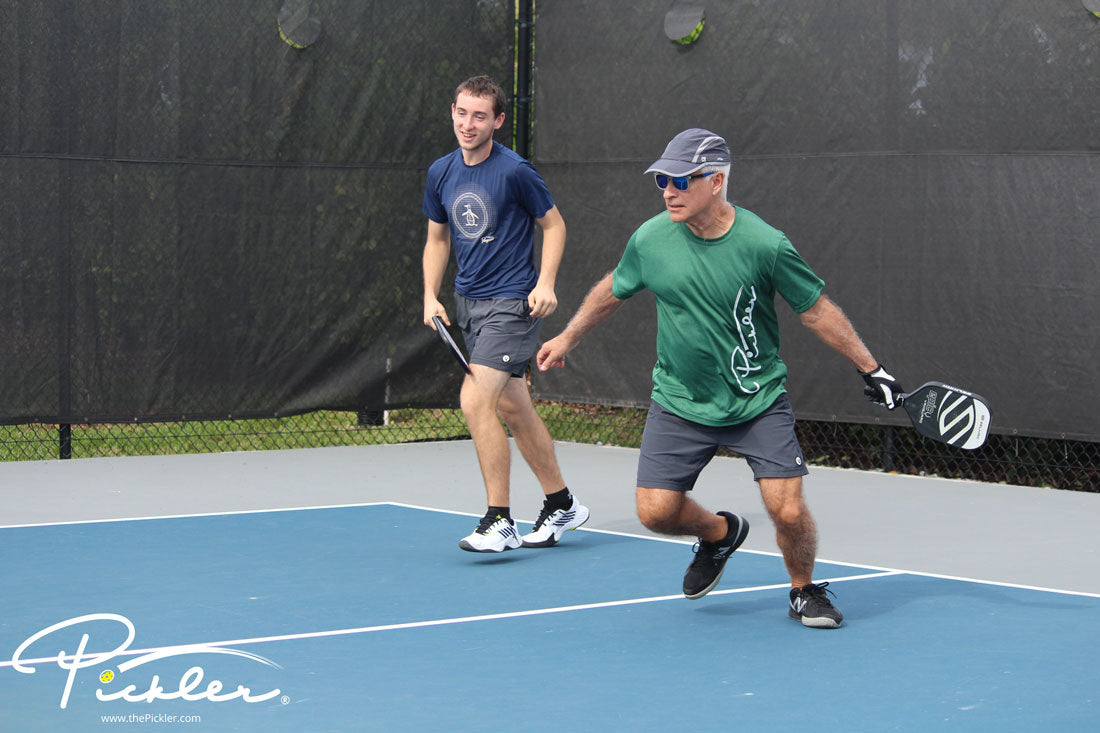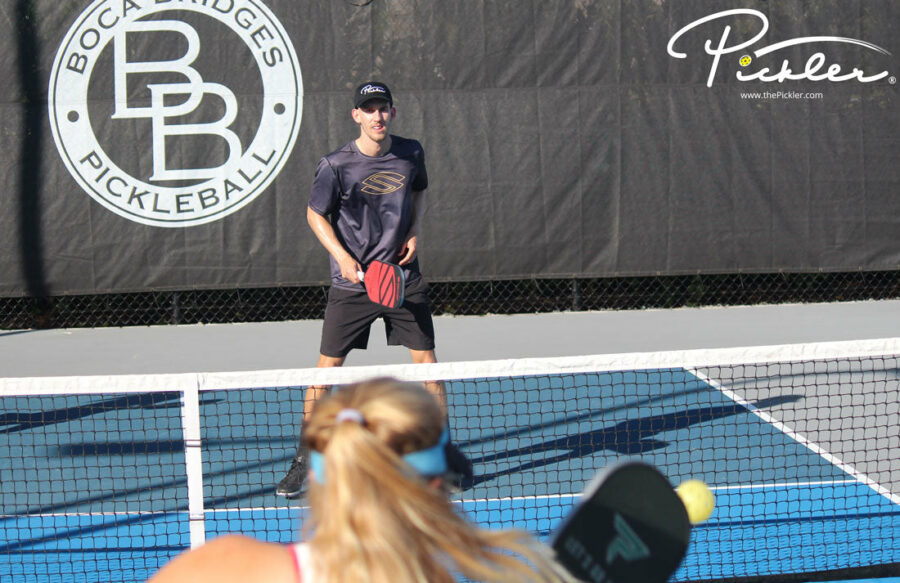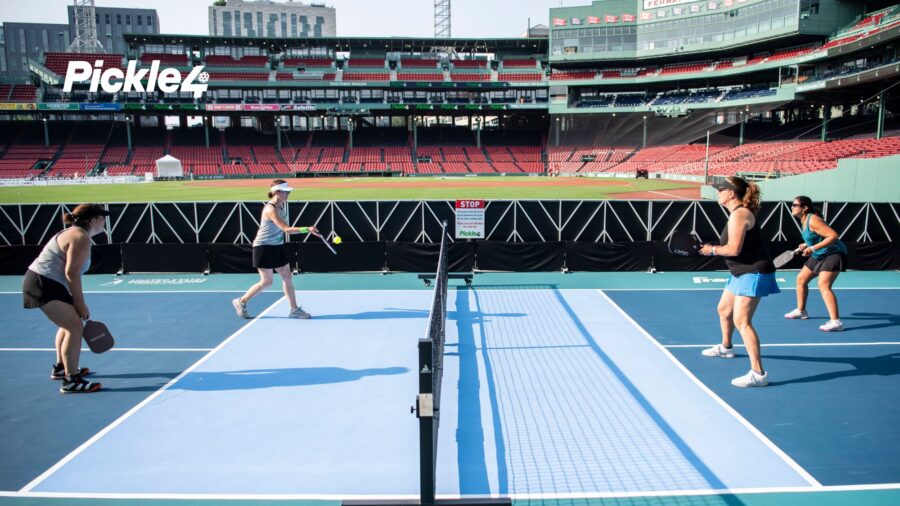We here at Murmurs from the Losers’ Bracket (*for those new to Murmurs, this is a humorous tongue-and-cheek opinion piece – don’t take us too seriously… we are trying to have fun, just like we do on the pickleball court) are fully aware that many new players are coming to the game of pickleball. These new converts are often confused, not only by the three-number scoring in doubles, but by the double-speak that is very common in the game.
People often say one thing in pickleball but mean something else. This is sometimes because of the genial, social aspect of the game. There’s frequently an attempt to keep things light and upbeat with the strangers we are cast to play with and against during open play.
This double-speak is also sometimes rooted in the kind of passive-aggressive behavior that thrives when competitive people try a little too hard to secure “the W” in what might seem to the untrained eye as meaningless, low-stakes, rec play with somebody’s grandma.
In either case, if you’re new to the game you might be under the impression that the words you hear coming out of another player’s mouth mean what they appear to be saying.
This is often not the case. So, in an effort to give you a better understanding of the true meaning of expressions you might hear on the pickleball court, we here at Murmurs from the Losers’ Bracket offer you this translation guide.
***
“Good idea.”
If you have an easy-going, mentally stable partner, he or she will usually say “good idea” to you after you flub a third-shot drop, or pass up returning the ball down the middle for a high-probability winner, in order to hit a risky passing shot down the sideline that sails wide, costing your team the loss of a rally.
Nobody ever says “good idea” when you adeptly execute a shot that lands inbounds. Those decisions are definitely good ideas, but they are always called “nice shots.” No “ideas” get mentioned during nice shots.
If you hear the words “good idea” from your partner, it almost always means you passed up a good-shot opportunity by having a “bad idea.”
Also, be advised, if a player on the opposing team tells you “good idea” after you miss a shot, check to see if he or she is smirking while saying it.
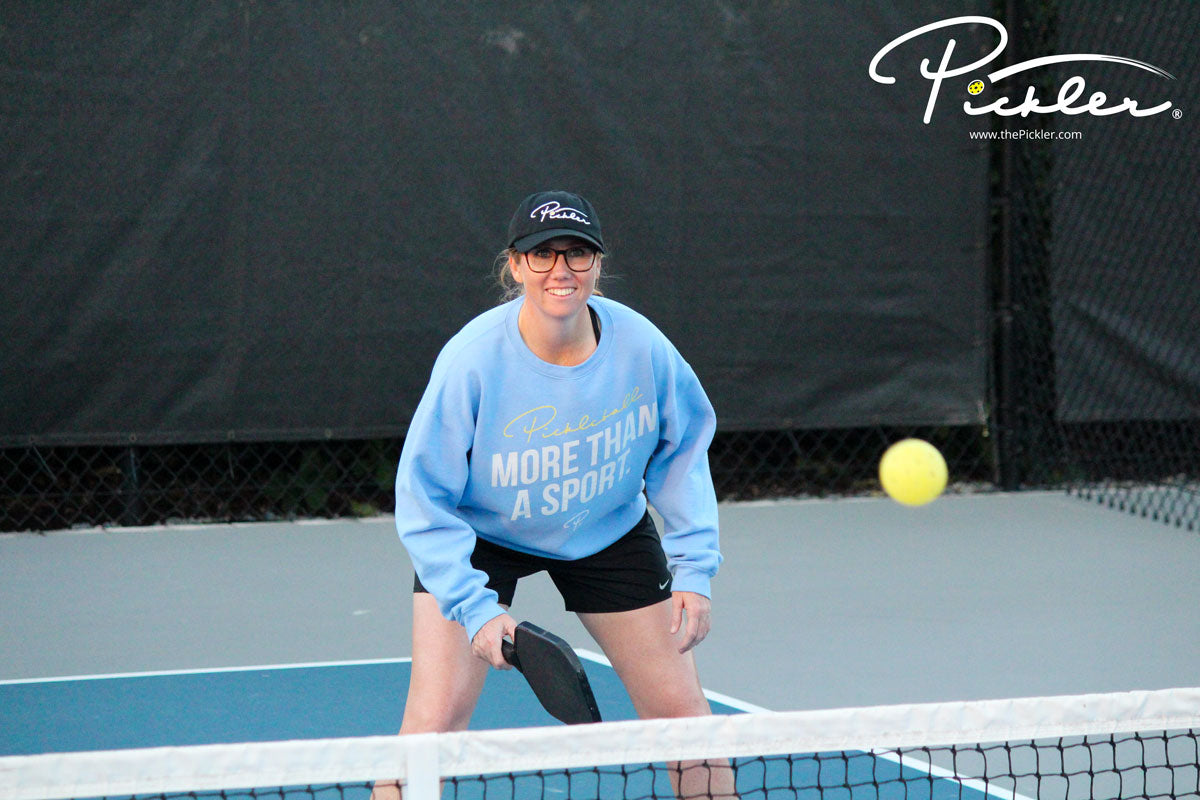
***
“I think it was out.”
If you hit a ball that’s near a line, and the person on the other team closest to that ball says “I think it was out”, it really means “I think it was in.”
I know. I know. This sounds counter-intuitive. But it’s almost always the case. If the player on the other team thought the ball was out, you’d hear one word, “Out!” And it would be spoken emphatically. Probably by both players on the other team.
But when one player says, “I think it was out” – usually after a brief pause – it speaks to a conflict between the eye and the brain of that player.
What that player means is that the eyes conveyed the message that the ball was really close to the line, and likely to have been inbounds by the rules of pickleball. But the player’s brain was delivering a conflicting message, based on hope, that it was out of bounds because it was too difficult to return.
Remember, if the ball is close enough to the line where you can’t see any space between the ball and the line it should be called “in.” Or to put it another way: Anything that’s not definitively “out” should be called “in.”
So, when players fudge on the language, throwing in the words “I think it was out”, what they are really saying is, “I hope it was out.”
But what their eyes told them was, “It looked like it was in.”
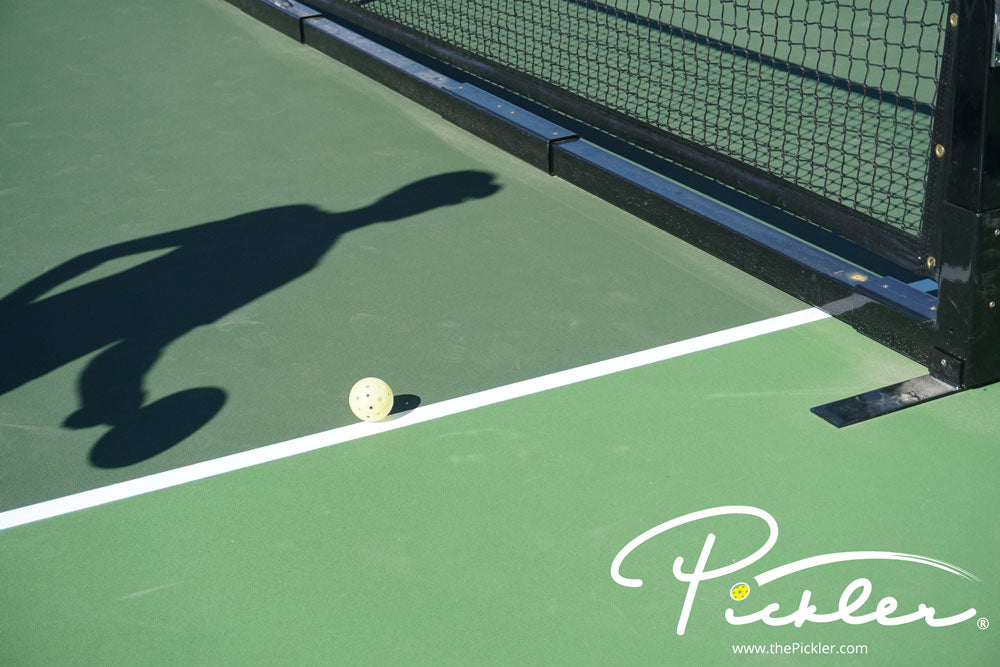
***
“I really like my new paddle.”
This is usually said when you are doing your dink warmups before playing, and you notice another player has a new paddle.
“Is that new?” you ask.
“Yes,” the other player will say, and then he or she will add, “I really like my new paddle.”
This doesn’t mean you should run out and buy that paddle. Everybody that gets a new paddle says, “I really like my new paddle.”
For newcomers to the game, this is because their previous paddle was purchased as part of a set of two on Amazon, in a deal that included four balls, all for $60.
And their understandable new addiction to pickleball has caused them to imagine that their inconsistent, skills-challenged game would be much improved if they started playing with a serious paddle worthy of a pickleball pro.
Once they get the more expensive paddle, they quickly learn that this is not the case, and for some, it’s a disappointing realization.
They’ve just invested $200 in a new paddle, yet still play at the same level they had with the $30 Amazon paddle. It’s not easy to admit.
So, yeah, “I really like my new paddle.”
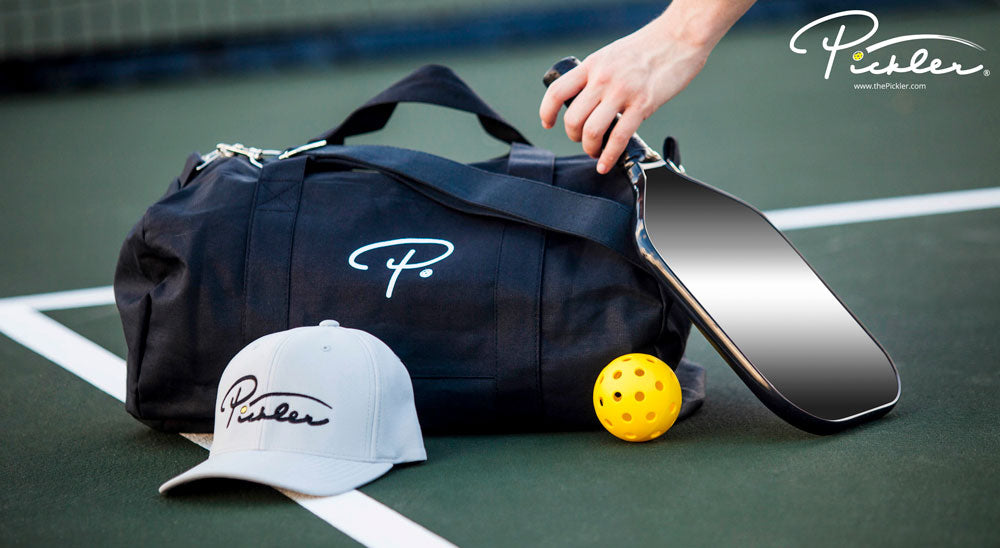
***
“Sorry.”
You will often hear players express some form of sorrow after they mercilessly tattoo a player on the opposite team with an overhead smash while standing 14 feet away on the other side of the net.
These expressions of sorrow are rarely genuine, especially when the word, “Sorry” is dragged out to the three or more syllables. “So-oo-rrr-y.”
If you hear somebody say, “Sorry” to you, it just might mean, “Nailed ‘ya.”
This leads to a response that is also less than genuine.
The players on the receiving end of these meat volleys will often react to being hit by saying, “No problem. That’s part of the game.”
This might seem as if these players are unfazed by being hit in the head with a smash or left with a red mark on an arm or leg. But that “part of the game” reply is really saying that they are looking forward to the opportunity when they will tattoo you with the ball later in the game.
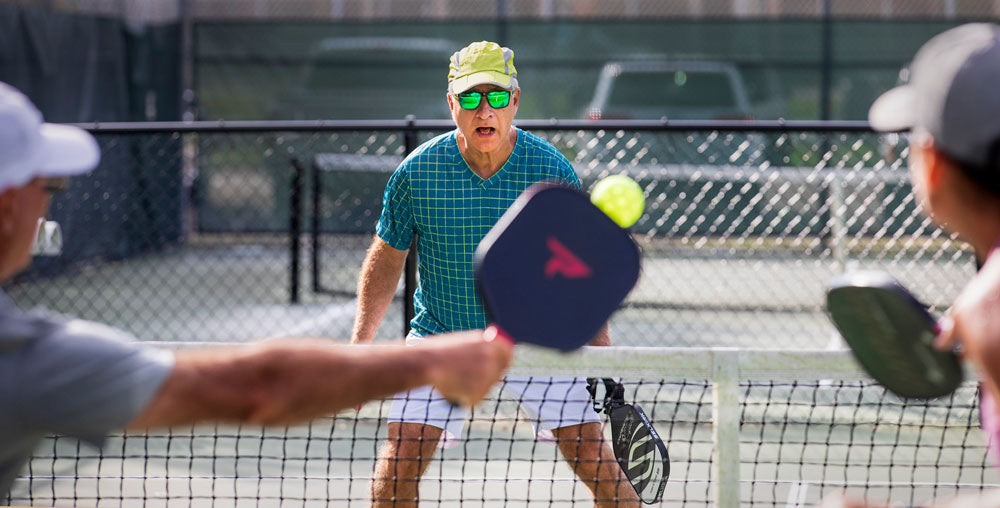
***
“It’s the wind.”
It’s not the wind. You just hit the ball poorly and it went out. This is especially true for players who blame the wind while playing indoors.
***
“Good game.”
You will sometimes lose a lopsided 11-0 or an 11-1 game after the winners purposefully engineered a match that pitted the two best players on one team against the two worst players on the other.
And then after notching a victory in a game marked by short rallies and constant pop-up returns from your team, the winners will come to the net, tap paddles, and tell you “Good game” as if they’re the epitome of sportsmanship.
Just roll with it. You’ll want to say, “No, bad game! You two should have split up and played on opposite teams.”
But to paraphrase the final line in the movie, Chinatown: “Forget it, Jake, It’s pickleball.
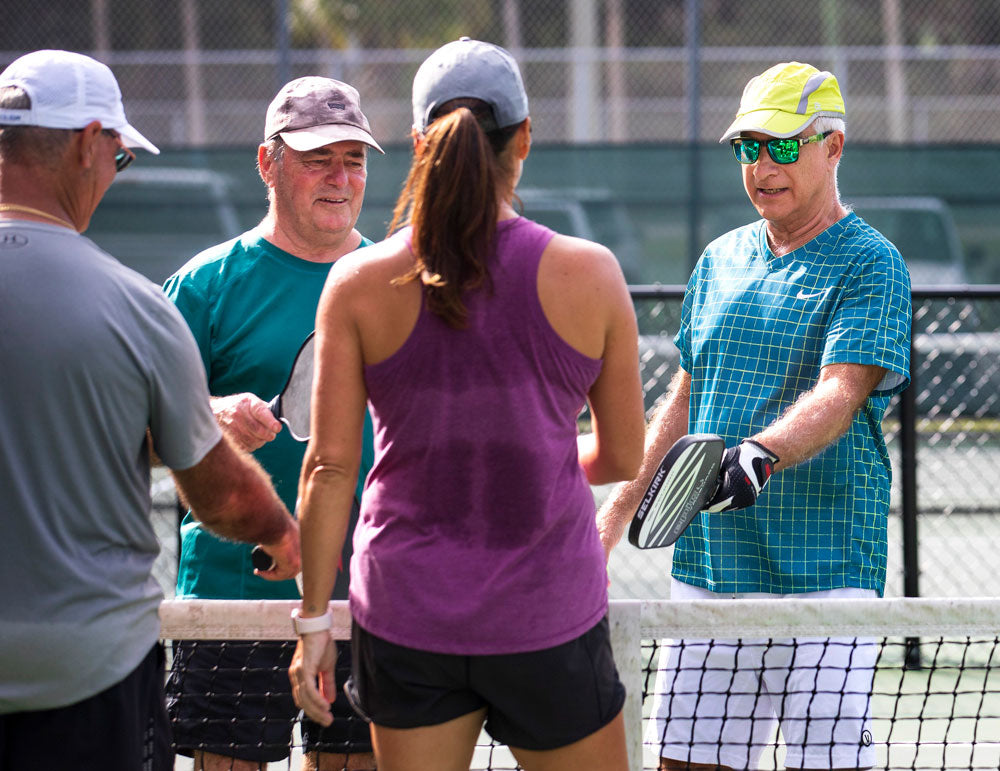
MURMURS FROM THE LOSERS’ BRACKET
Read past editions of Murmurs from the Losers’ Bracket, including:
- The Ozempic Ad
- Ball On Court? Maybe Not
- The PPA, the APP and Monty Python
- Time to Get Help at Bangers Anonymous
- “It’s an Injury Sport”
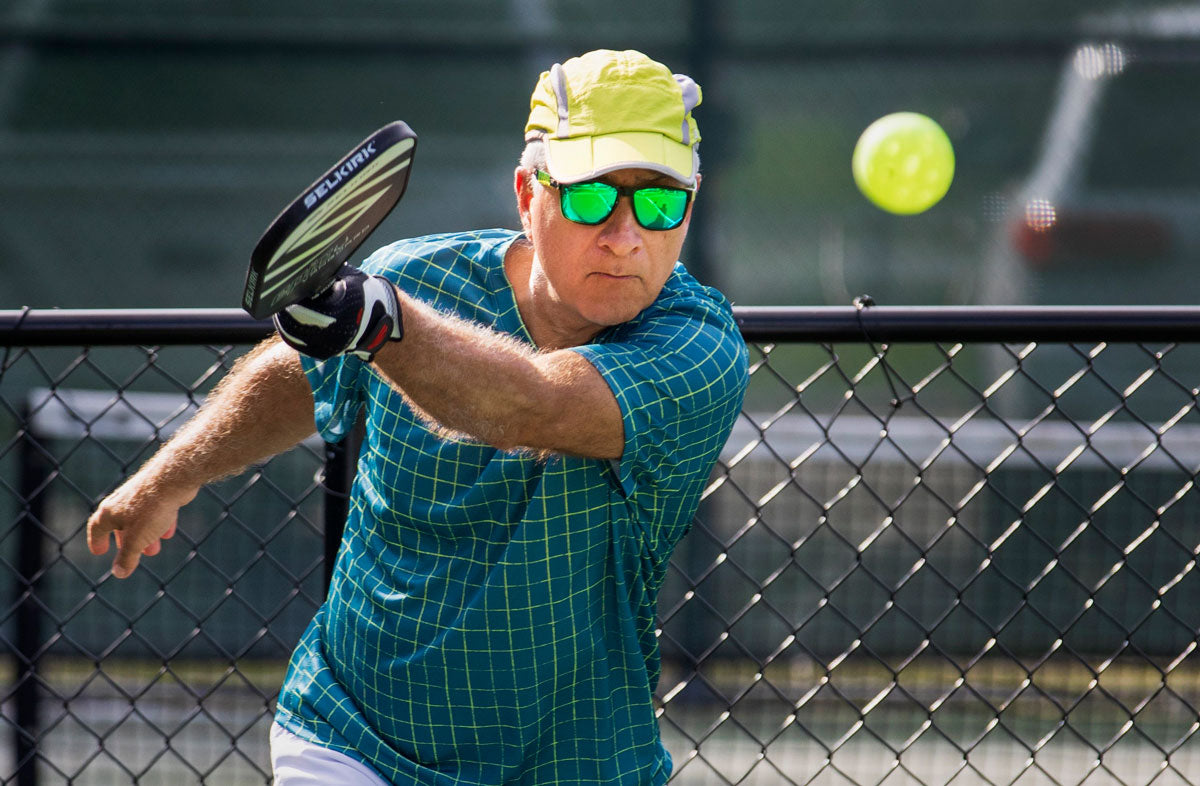
Frank Cerabino is a long-time columnist for the Palm Beach Post in Florida, a pickleball addict like the rest of us, and a newly published author. Check out Frank’s newly released book, I Dink, Therefore I Am: Coming to Grips with My Pickleball Addiction (available on Amazon and a great read (or gift!) for any pickleball player), for pickleball tips and laughs!

